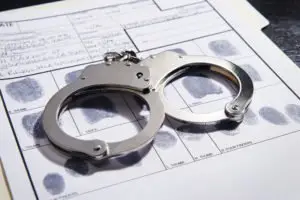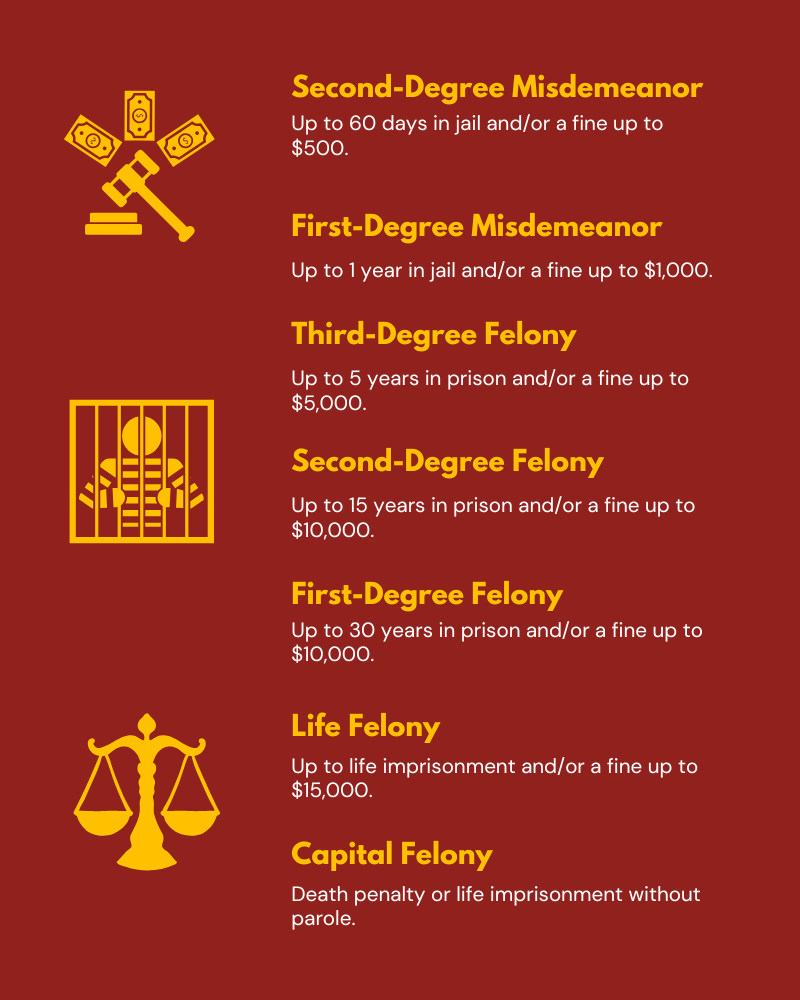
Criminal mischief is more than just the infamous night of pranking that happens every year on Mischief Night. In Tampa, police arrest hundreds of people year-round for defacing or damaging property throughout the city. Being detained for criminal mischief can carry consequences that can affect you for the rest of your life.
Florida law regarding criminal mischief is complex. Many different actions fall under this umbrella and your best chances for fighting the charges lie with a qualified Tampa criminal defense lawyer. If you’re looking at this article and need a lawyer, you’ve come to the right place.
The Law Place has over 75 years of combined experience as criminal defense attorneys representing clients all over the State of Florida in various practice areas. Our law firm offers an exceptional attorney-client relationship with a proven record of excellence in the courtroom. If you have been charged with criminal mischief, The Law Place can provide the best criminal defense representation on the market.
Contact The Law Place today. A Tampa criminal mischief lawyer from our law firm is waiting for your call.
Call us now at (941) 444-4444.
The Law Place: Experienced Criminal Mischief Lawyers
At The Law Place, our team of dedicated criminal defense attorneys is well-versed in handling criminal mischief cases. Whether you’re facing accusations for vandalism, property damage, or graffiti, our attorneys have the knowledge and experience to defend your rights and provide a strong legal defense.
David A. Haenel, one of the firm’s leading attorneys, brings extensive experience in criminal defense to every case. Known for his sharp courtroom skills and comprehensive understanding of Florida’s criminal statutes, David has successfully defended numerous clients against criminal mischief charges. His strategic approach ensures that every angle of your case is thoroughly examined, and he is dedicated to reducing or dismissing charges where possible.
Darren Finebloom is another integral part of our criminal defense team, with years of experience handling property crimes and misdemeanors. His deep understanding of Florida law and ability to negotiate with prosecutors have helped countless clients avoid severe penalties. Darren is passionate about defending individuals accused of committing criminal mischief and works diligently to minimize the impact of these charges on your future.
At The Law Place, we understand how criminal mischief charges can affect your reputation and lead to serious legal consequences. Our team of experienced attorneys is ready to fight for your rights, ensuring that you receive fair treatment under the law. If you’re facing charges, contact The Law Place today for a free consultation.

Florida Criminal Mischief Legal Definition
According to Florida Statutes 806.13, criminal mischief can be defined as the intentional destruction or defacement of private or public property. If you willfully and knowingly cause damage to someone else’s property you can be arrested and charged with criminal mischief.
While most often this is prosecuted as a misdemeanor in either the first or second degree, certain circumstances call for third-degree felony charges. There are serious penalties associated with this type of crime, so you need to be prepared for the worst.
If you have been charged with criminal mischief, you need to contact an attorney to represent your interests. Police will try to get you to admit wrongdoing in their attempts to collect evidence against you. Remain silent at all times, and only give them your relevant personal information like name and address. If you have not yet been arrested for a crime, do not give them any information at all.
The Law Place is here to help when you need us most. Contact us to find out how we can start strategizing for your defense immediately. Our Tampa representatives will promptly reply and explain how our services will work going forward.
 We’re here to serve you. Our phones are open 24 hours a day.
We’re here to serve you. Our phones are open 24 hours a day.
Difference Between a Misdemeanor and a Felony Criminal Mischief Crime in Tampa, Florida
There are varying degrees of severity for criminal mischief cases. They can be charged as first or second-degree misdemeanors or a third-degree felony. The punishment depends on the amount of property damage that was inflicted and onto whom or what it was inflicted upon.
The prosecution considers the following factors to determine how to charge individuals with criminal mischief:
Second-Degree Misdemeanor
- Damage to the property less than $200.
First-Degree Misdemeanor
- Damage to the property was more than $200 and less than $1,000.
Third-Degree Felony
- Damage to the property was more than $1,000.
- The destruction caused the property to cease any services normally rendered for any amount of time.
- The destruction disrupted or damaged any public utilities like the water, gas, or power supply and it requires more than $1,000 in labor and repair costs to fix.
- The defendant has a previous criminal mischief conviction on their record.
- The damage to the property was worth more than $200 and directed towards any place of worship or any religious item housed inside (churches, synagogues, mosques).
- The destruction resulted in the disruption of public communications systems or public telephone services.
- The damage to the property was worth more than $200 and directed towards any violent sexual predator detention facility.
Although there are more criteria for being charged with a third-degree felony, a majority of these types of cases are charged as first-degree or second-degree misdemeanors.
 We’re Florida’s top litigation team with over 75 years of combined experience
We’re Florida’s top litigation team with over 75 years of combined experience
Penalties for Criminal Mischief in Tampa, Florida
The fines and potential jail or prison time that results from a criminal mischief conviction depend on what type of charges the defendant faced. Misdemeanors will have lesser penalties, while a felony may result in extremely serious consequences. Florida Statutes 775.082, 775.083, and 775.084 lists these as:
Second-Degree Misdemeanor
- Maximum of 60 days in jail.
- Maximum of $500 in fines.
First-Degree Misdemeanor
- Maximum of 1 year in jail.
- Maximum of $1,000 in fines.
Third-Degree Felony
- Maximum 5 years in prison.
- Maximum $10,000 in fines.
Florida law also states that there are separate fines specific to criminal mischief offenses. These are:
- Minimum of $250 for a first conviction.
- Minimum of $500 for a second conviction.
- Minimum of $1,000 for a third or subsequent conviction.
In addition to all of the above-mentioned penalties, offenders may be forced to pay for any property damage they caused. This can add thousands of dollars to any sentence they are handed by the court.

Florida Crime Categories: From Misdemeanors to Felonies
 From the initial call to updates on your case status, we are here to get you answers.
From the initial call to updates on your case status, we are here to get you answers.
Common Examples of Criminal Mischief in Tampa, Florida
Criminal mischief takes on many forms, but some common examples are:
- Graffiti on structures, vehicles, and all types of property without permission.
- Contaminating a computer or computer system with a virus.
- Damaging a fire hydrant.
- Damaging or removing public signage.
- Defacing or damaging an emergency exit, emergency exit signage, or fire alarm.
- Damaging or defacing a tombstone or other type of gravesite.
- Defacing or damaging property with foreign materials.
These represent only a few of the potential offenses that fall under criminal mischief. It is not commonly understood that defacing or damaging digital property like computers, computer networks, or digital files can be charged as criminal mischief, but Florida law is creating a precedent to include these crimes under those legal statutes.
Can a Tampa Criminal Mischief Charge Be Expunged?
Unfortunately, no criminal convictions can be expunged in the State of Florida. Although many people assume this only applies to felonies, criminal misdemeanors cannot be expunged either. If you were convicted of a misdemeanor or felony mischief, you cannot have that record expunged and it will stay with you for life.
However, Florida Statute 943.0585 states that most arrest records can be expunged if the charges did not result in a conviction. If you go to trial for criminal mischief and are found not guilty, or if the charges against you were dropped or dismissed, you can have the arrest record erased.
Contact us if you have any questions regarding the process of criminal record expungement. We can help you process all of the paperwork required and get an arrest record expunged within 7 months on average. This will help if you ever go through a criminal background check for a job interview or for taking out a loan like a mortgage from the bank.
What Can a Tampa Criminal Mischief Attorney Do for Me?
A criminal defense lawyer from The Law Place can defend you from these types of charges in several ways. Although every case is unique, a lawyer will examine the following ways to potentially have the charges dismissed or convince a jury of a not-guilty verdict:
- Your actions did not result in the property damage in question.
- The property is not actually owned by the alleged victim.
- Your actions that destroyed or defaced property were not intentional or malicious.
- The amount of property damage the alleged victim claims is false or overstated.
- The amount of property damage the alleged victim claims was not due to your actions.
- An altercation between yourself and the alleged victim resulted in the property damage unintentionally.
- You were legally justified to commit the destruction of property.
- You were acting in self-defense or the self-defense of another person when the destruction of property occurred.
- There was no public signage of the penalties for defacing an antenna or public communications array.
A representative from The Law Place can explain how a lawyer can defend you in detail. Contact our Tampa office today to start preparing your criminal defense.
Resources for Those Accused of Criminal Mischief in Tampa
If you’re facing criminal mischief charges in Tampa, the following resources can provide valuable support and information:
- The Law Place – Offers free consultations with experienced Tampa criminal defense attorneys who can explain your options and build a strong defense.
- Hillsborough County Clerk of Court – Provides information on court procedures, access to case records, and online payment options for court fees.
- Tampa Police Department – Offers resources and information on local laws, arrest records, and crime reporting in the Tampa area.
- Florida Department of Corrections (FDOC) – Provides information about the Florida criminal justice system, probation services, and resources for individuals with prior convictions.
- Florida Department of Law Enforcement (FDLE) – Offers access to criminal history records, background checks, and information on the rights of individuals facing criminal charges.
These resources can offer guidance and support, ensuring you understand the legal process and your rights.
Tampa Criminal Mischief Lawyer, FAQ
How long do you go to jail for criminal mischief in Florida?
The jail time for criminal mischief charges in Florida depends on the severity of the offense. If the property damaged is valued at $200 or less, it is considered a second-degree misdemeanor punishable by up to 60 days in jail. If the damage exceeds $1,000, the offense becomes a third-degree felony punishable by up to five years in prison under Florida Statute 806.13. An experienced criminal defense attorney can help reduce or dismiss charges, depending on the case.
What is the vandalism law in Florida?
Under Florida Statute 806.13, vandalism falls under criminal mischief, which involves willfully and maliciously damaging or defacing property. This can include public, private, memorial or historic property, and religious articles. Depending on the amount of damage, penalties range from a second-degree misdemeanor punishable by 60 days in jail to a third-degree felony punishable by up to five years in prison. Additionally, offenders may face fines, restitution, or community service.
What types of property crimes fall under criminal mischief?
Criminal mischief charges cover a wide range of property crimes, including vandalism, graffiti, destroying or damaging someone’s property, and tampering with real or personal property. Crimes targeting public spaces, schools, churches, and memorial or historic property can lead to enhanced penalties. In cases where a prior conviction exists, or if significant property damaged exceeds $1,000, offenders may face felony charges.
What if I am falsely accused of committing criminal mischief?
If you have been falsely accused of committing criminal mischief, it’s essential to contact an experienced criminal defense attorney immediately. Your attorney can gather evidence, question witnesses, and help build a strong defense to prove your innocence. Being falsely accused can have severe consequences, including criminal penalties and damage to your reputation, so it’s crucial to have proper legal representation.
What is the difference between misdemeanor and felony criminal mischief?
In Florida, criminal mischief occurs when a person intentionally damages or defaces someone else’s property. If the value of the destroyed property is $200 or less, the crime is classified as a second-degree misdemeanor, with lighter penalties like fines or short jail terms. When the damage exceeds $1,000, the offense becomes a third-degree felony punishable by more severe penalties, such as prison time and higher fines.
What are the penalties for criminal mischief involving a religious article or historic property?
If criminal mischief occurs against a religious article or memorial or historic property, Florida imposes enhanced penalties. Defacing or damaging such property is a felony, even if the damage is less than $1,000. Additionally, offenders may face fines, jail time, and mandatory community service aimed at restoration or public awareness of the crime.
Can a prior criminal mischief conviction affect sentencing?
Yes, having a prior conviction for property crimes or criminal mischief charges can result in harsher penalties. Repeat offenders may face increased fines, longer jail sentences, and more serious felony charges. If you are facing a second or subsequent charge, it’s critical to have an experienced criminal defense attorney to protect your rights and reduce the impact of the penalties.
What role does criminal trial law play in a criminal mischief case?
Criminal trial law is essential in a criminal mischief case, as it governs the entire process from the initial charges through trial and possible sentencing. If you’re accused of criminal mischief, the case may progress to a trial if the charges cannot be resolved through negotiation or dismissal. During a trial, both the defense and prosecution will present evidence, witness testimony, and arguments to determine whether the defendant is guilty of committing criminal mischief.
Contact The Law Place Tampa, Florida Criminal Mischief Law Firm Today!
Have you or a loved one been charged with misdemeanor or felony criminal mischief in Tampa, Florida? Were you unaware of the consequences or did you commit the act unintentionally?
Contact us today to find out your options. Florida law for criminal mischief is complex. It is in your best interest to enlist the aid of a qualified criminal defense attorney as soon as possible to start preparing for your trial or to try to get the charges dismissed. Our law firm offers a free consultation with a lawyer to go over the details of your case and to explain how our representation will benefit you. The Law Place attorneys have over 75 years of combined experience and work together on every case across all practice areas, meaning the entire law firm has your back.
Don’t hesitate to contact our Tampa office today. If you are not based in Tampa, we have offices all over the State of Florida to best serve you. Our representatives are ready and waiting for your call 24 hours a day, 7 days per week.
Call The Law Place criminal defense attorneys now at (941) 444-4444.





